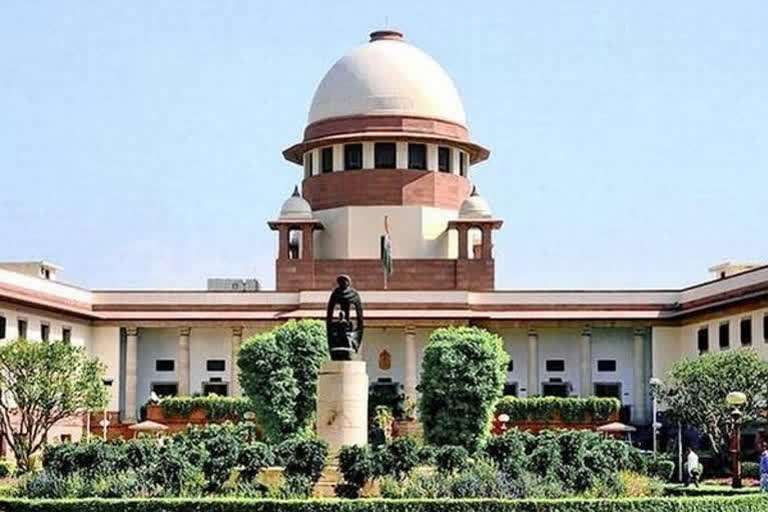New Delhi: The Supreme Court on Tuesday expressed its satisfaction with the measures taken by the Centre to contain the spread of coronavirus but expressed serious concern over the circulation of fake news across various news platforms - electronic, print or social media -- which triggered an exodus of migrant workers from the cities.
A bench headed by Chief Justice S.A. Bobde and comprising Justice L. Nageswara Rao said: "The migration of a large number of labourers working in the cities was triggered by panic created by fake news that the lockdown would continue for more than three months. Such panic-driven migration has caused untold suffering to those who believed and acted on such news".
ALSO READ |Kejriwal says situation under control; no community transmission
The top court noted that in fact, some have lost their lives in the process. "It is therefore not possible for us to overlook this menace of fake news either by electronic, print or social media," it added.
The bench also expressed satisfaction with the steps taken by the Centre for preventing the spread of coronavirus at this stage. It observed that media (print, electronic or social) must maintain a strong sense of responsibility and ensure that unverified news capable of causing panic is not disseminated. "A daily bulletin by the Government of India through all media avenues including social media and forums to clear the doubts of people would be made active within a period of 24 hours as submitted by the Solicitor General of India," it said.
ALSO READ |Pregnant woman walks 200 km to her home in UP
The bench also insisted that it does not intend to interfere with the free discussion about the pandemic, but directs the media to refer to and publish the official version about the developments. "Section 54 of the Disaster Management Act, 2005 provides for punishment to a person who makes or circulates a false alarm or warning as to disaster or its severity or magnitude, leading to panic. Such person shall be punished with imprisonment which may extend to one year or with fine," added the court.
